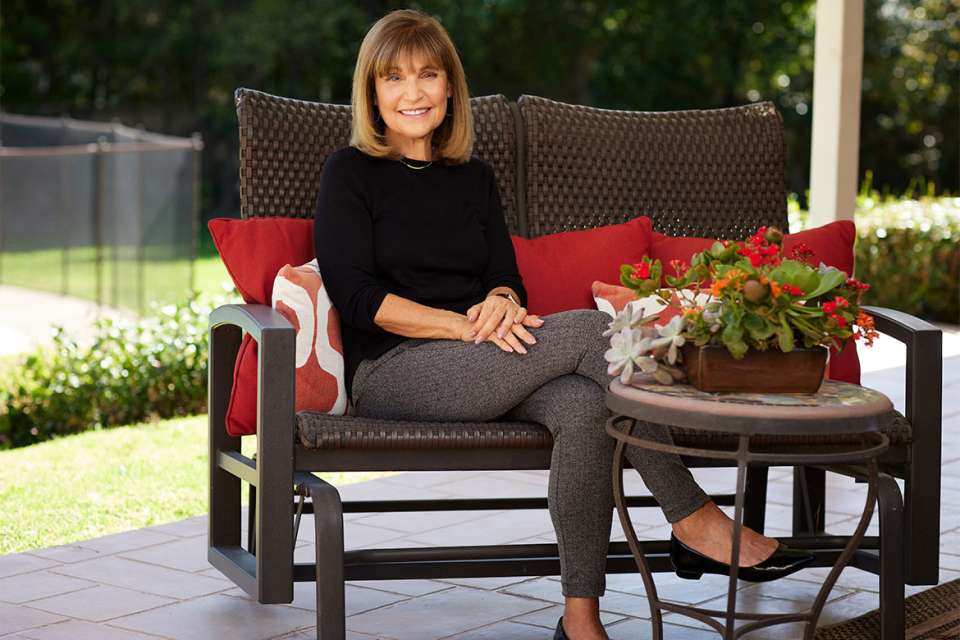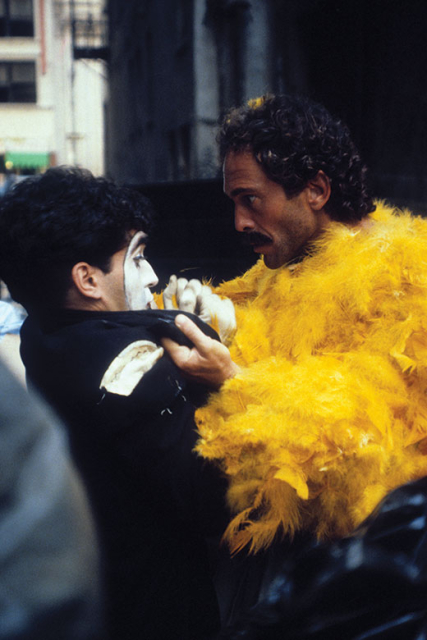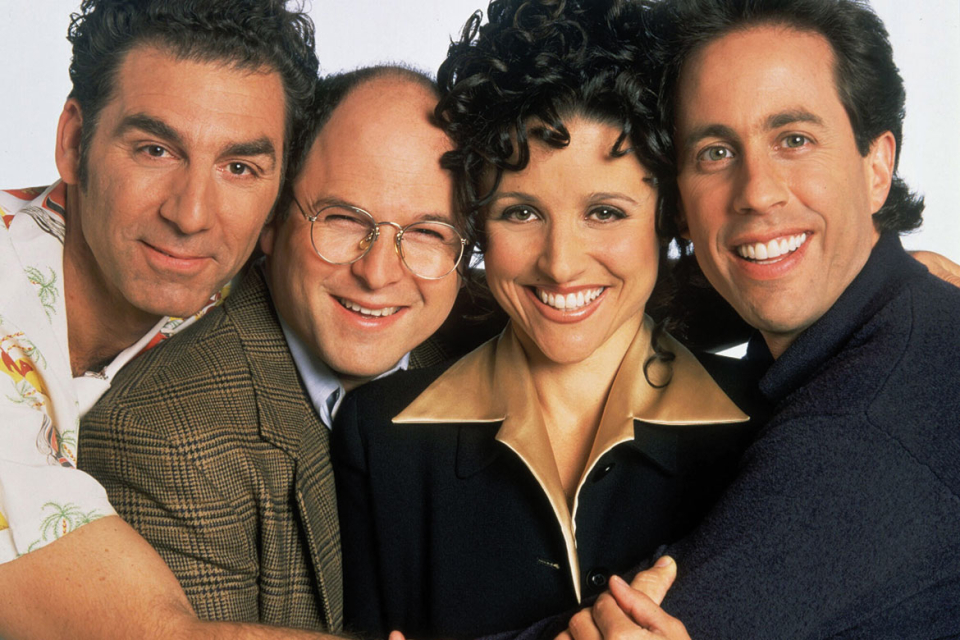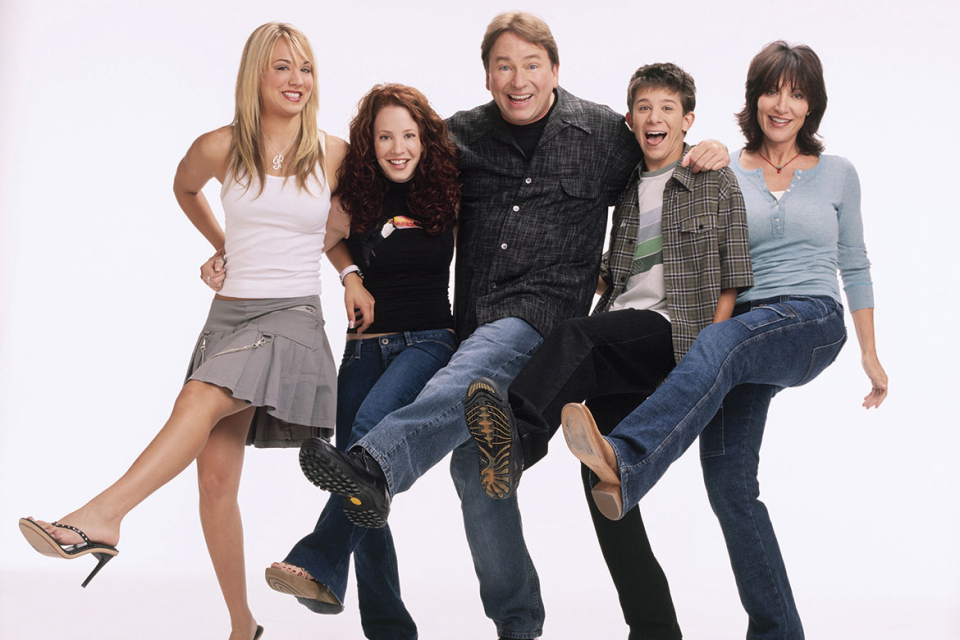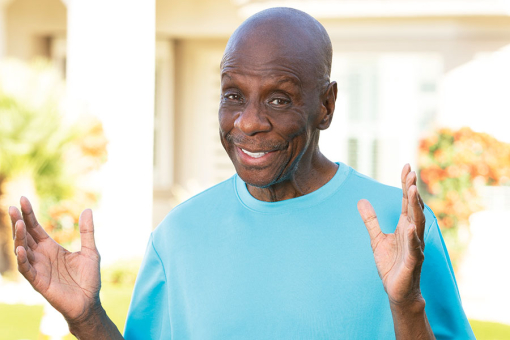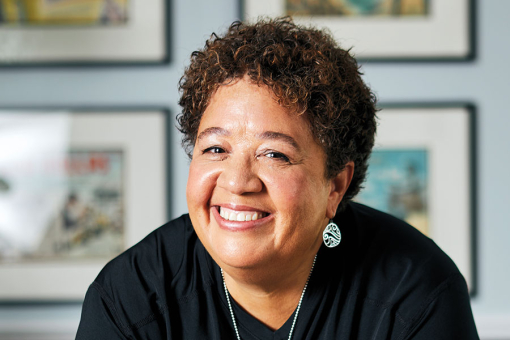Across her 40-year career in casting — stretching from Barney Miller to Jane the Virgin — Lori Openden has placed talent in many of television's top shows, from both inside the networks and out.
She alternated network positions with stints as an independent casting director, eventually retiring from The CW, where as executive vice-president of talent and casting, she was delighted to launch Gina Rodriguez as Jane, the young woman who becomes pregnant in a surprising way.
A native Angeleno, Openden credits her knack for matching actors to roles with being a people person. "I love talking with actors," she says. "I love listening to auditions. And I just loved watching the performances."
She worked in the casting department at NBC from 1985 to 1999 and was involved in casting iconic shows from that period, such as Seinfeld, Fresh Prince of Bel-Air, Will & Grace and ER. For her work on Cheers and Hill Street Blues, she was recognized with two Artios Awards, the Casting Society of America's top honor.
Her advice for aspiring actors?
"I don't encourage anybody to become an actor unless there's nothing else in their life that would make them happy," she says plainly. "It's a very competitive business."
Openden and her husband, Jeff, have two children and three grandchildren. She was interviewed in December 2019 by Adrienne Faillace for The Interviews: An Oral History of Television, a program of the Television Academy Foundation. The following is an edited excerpt of their conversation. The entire interview can be seen at TelevisionAcademy.com/ Interviews.
Q: When you graduated, did you have an idea of what you wanted to do?
A: Not at all. My first job after college was at the William Morris Agency in Beverly Hills, now William Morris Endeavor. I used to take minutes for the television meetings, so I got to know all the agents.
One day a friend who worked on Barney Miller said, "Lori, we're going to shoot 13 episodes."
I said, "That's great. You're going to need more secretaries over there." And I got that job. That's how I made my transition out of the agency into television production.
Q: What were your duties at Barney Miller?
A: I worked for the casting director, one of the producers and the executive in charge of production. But I really felt a connection with the casting director, Beth Uffner. I was very involved with her in picking the actors. That's where I was able to learn casting and to realize that this was a good place for me.
I had a strong memory for names. I learned how to assess performances, and I learned how agency representation works, which is really important in casting. I learned a lot from [executive producer] Danny Arnold, who was wonderful at casting, not to mention comedy, which is what he was known for.
Q: What was it that you liked about casting?
A: It's very people-oriented. You're always talking and engaging with people. I love talking with actors. A lot of our Barney Miller actors started in New York theater; they always had great stories to tell, and I loved listening to them. I love listening to auditions. I loved when they made me laugh. And I just loved watching the performances.
Q: Barney Miller ran for eight seasons. Did you stay for the full run?
A: No, I left about three years in. The head of casting at MTM, Meryl O'Loughlin, had been a Barney Miller fan and thought the casting was very inventive. She called me, and I interviewed over there. It was a very tough decision, but I left Barney Miller for MTM. I was there for seven years.
In my first year, I cast The Betty White Show, which was wonderful; unfortunately it didn't last. And I cast the last two seasons of Rhoda, seasons four and five. I loved getting to know Valerie Harper, Julie Kavner and the other actors on the show.
When those series ended, I was asked to cast a wonderful show called The White Shadow for [producer-director] Bruce Paltrow. He brought in Ken Howard to star; he played a coach who'd retired from pro basketball and went to coach at an inner city high school. We found actors who could play basketball, in most cases. We had some terrific actors.
Q: Another MTM show you worked on was Steven Bochco's Hill Street Blues....
A: Hill Street Blues was the biggest show of my career, and it led to many great things in my future.
It was the first drama series with a big ensemble cast. We had a great time casting it, though it wasn't easy. Several of our actors were friends of Steven's from Carnegie Mellon [University], like Bruce Weitz, who played Belker, one of the detectives.
Then we cast all the other characters — Veronica Hamel as public defender Joyce Davenport and Daniel J. Travanti as Captain Frank Furillo. Barbara Bosson, who was then Steven Bochco's wife, played Frank's ex-wife — she was Emmy- nominated five times for that role.
Steven wrote Belker with Bruce in mind. But Grant Tinker [cofounder of MTM, with his then-wife Mary Tyler Moore] said, "I don't know this actor. How do we know he can do this?" Steven said, "We'll set up an audition."
Q: What happened in the room?
A: So, we were all in an office at MTM when Bruce came through the door. He had the Belker hat on, the Belker gloves. He looked horrible. He was grungy. And he ran in, jumped on a desk, growled and looked around, then jumped down and left. And Grant said, "Well, I'm not telling him he can't have this role!"
That's how he became Belker — without saying one word, just by growling.
After casting the pilot, I stayed with the show for three years. I loved it, but I felt it was time for me to move on. At that time MTM had staff casting directors, meaning we worked all year-round, but we were paid a weekly salary. Now casting directors don't work like that.
They get paid per episode and make a lot more money.
Q: So you became an independent casting director.
A: I did.
Q: How were you getting jobs at that point?
A: I was freelancing, getting recommendations. Hill Street Blues was obviously a great credit. I cast a lot of TV movies and some pilots. Then a really nice thing happened. The casting director on Cheers left to become an executive at NBC. [Cheers cocreator] Jimmy Burrows remembered me from Rhoda; he brought me in to meet with the producers, and I got the job.
It was season three, and it was amazing. I had done the best of drama with Hill Street Blues, and now with Cheers I was doing the best of comedy. After that, I was recruited to go to NBC as vice-president of talent and casting, which was also an amazing opportunity. They'd had an all-male department up to that point.
Joel Thurm was head of casting and Brandon Tartikoff was head of the network, along with Grant Tinker, who I knew from MTM. Brandon liked that I was married and had children — that's what the audience was made up of, he reasoned, so why not have a casting executive who comes from that world? So in 1985, I went to NBC and I stayed for 14 years.
Three years in, Joel left to become a producer and I was promoted. For 11 years I was the head of the department, and I was at NBC during the incredible run of "Must See TV."
Q: Let's talk about casting some of those shows, starting with Seinfeld.
A: Obviously Jerry Seinfeld was attached. Jerry wanted a comedian to play his best friend George, but I, as well as some of the others, thought that was a bad idea. Jerry was a comedian, not an actor, and we wanted to surround him with really good actors. Jason Alexander auditioned and got the part, and it was great casting. He and Jerry were wonderful together.
Later, NBC gave the note to add a woman to the cast. Julia Louis-Dreyfus had been in another series for us, Day by Day. Castle Rock Entertainment, the production company behind Seinfeld, asked us about Julia; we were excited and agreed. She never auditioned. It was a straight offer, based on her other work.
Q: Fresh Prince of Bel-Air ....
A: Quincy Jones brought Fresh Prince to our executives at NBC; he had this young rapper, Will Smith, that he wanted to star in the show. We all met on a Wednesday night at Quincy Jones's house in Bel-Air — that was the only time that Will could audition for us. I read with him in Quincy's basement. He was adorable and wonderful. When he left, we all looked at each other and said, "Let's do it."
Q: Frasier ....
A: Frasier , of course, came with Kelsey Grammer [starring as radio psychiatrist Frasier Crane]. Kelsey had a deal with Paramount Television that whenever Cheers ended, he would be spun off into his own show. Lisa Kudrow had been cast on Frasier as Roz [the producer of Frasier's radio show], and in the middle of rehearsal week of the pilot, the producers felt it just wasn't the right fit.
They called me and said they were going to recast. They knew Peri Gilpin from Cheers and put her in that role. And they were right. It was magical. We always think when we look back on it, that if Lisa had stayed on Frasier, she would not have been available for Friends — so that was definitely something that was meant to be.
The casting directors on the show, Jeff Greenberg and Sheila Guthrie, brought in a picture of David Hyde Pierce very early on and said, "Doesn't he look a lot like Kelsey?" The producers agreed and met with him and wrote the part of the brother, Niles, for him. There wasn't a brother in the original concept of the pilot.
Q: Friends ....
A: Friends was just so much fun. Jennifer Aniston had been in several shows for NBC. We loved her and knew she was a breakout, but we weren't able to find the right show for her at the right time.
We had been struggling with casting the role of Monica. When Jennifer was sent the script, she loved it, but she wanted to play Rachel, not Monica. And she was right — she was better for Rachel. I credit her for knowing what she does best, because that was the perfect fit.
Q: Will & Grace ....
A: By educating the public about LGBTQ issues, Will & Grace ultimately changed the whole country. The pilot script was different from anything on the air, and it was a challenge to cast.
Very early on, we wanted Eric McCormack [as Will Truman]. We had different actors come in and read for Grace [Adler]. When we got down to the end, we had a very unusual casting session.
It was a rainy Sunday, and we went to Jimmy Burrows's house — Warren Littlefield [then president of NBC Entertainment] and a couple of other executives and myself. We had Eric there, and we brought in three candidates for Grace. It was very obvious that the role was Debra Messing's. There really wasn't a second choice. Debra was great from the very beginning, and her comedy timing was amazing.
It was a really important show. Many people have said they were comfortable coming out because of Will & Grace, as well as because of Ellen DeGeneres's show [Ellen]. Gay men and women were allowed to be who they were — they saw themselves on television and that made it okay. We were all really proud of the show.
Q: Let's talk about some NBC dramas, like the long-running ER ....
A: One of the best shows ever. George Clooney was attached early on [as Dr. Doug Ross], but everybody else auditioned in my office at NBC. A lot of credit goes to John Wells, the executive producer, and John Levey, the casting director.
Our biggest problem in casting the show was the character of Dr. Peter Benton. We actually delayed production and started shooting without having a Dr. Benton.
I was watching a tape of an old pilot that we'd done — Eriq La Salle had been in it. I said to my associate, Steven O'Neill, "Make sure ER has seen Eriq La Salle." They hadn't seen him. They brought him in, and he was Dr. Benton. He and Noah Wyle [as Dr. John Carter] were terrific together.
Q: After your time at NBC, didn't you return to independent casting?
A: Yes. When I left NBC, I took a few months off because I had a contract that they'd paid out. Then I became an independent casting director again.
Soon, a producer friend of mine from NBC, Flody Suarez, called. He was doing a new show, 8 Simple Rules... for Dating My Teenage Daughter, and he asked if I'd meet with the other producers about becoming the casting director. I did, and I got that job. That ultimately was the most fun show I ever worked on.
John Ritter [who starred as dad Paul Hennessy] actually came to the show a little bit later. We cast the kids first. It was a big job for Kaley Cuoco [who played daughter Bridget]. Then we got John Ritter, and Katey Sagal [as wife Cate] came in and read with him at ABC. We had one of those shows where everything fit together beautifully.
Q: Then, a tragic event occurred....
A: Yes. We had a great first year, and the show was really doing well. The ratings were good; we were renewed for the second year. And then, I believe, during production of the third episode of the second season, John Ritter unexpectedly passed away overnight. I had seen him on the set Thursday night. I remember saying hello to him and he to me, and he died that night.
We shut down production, and a decision was made to add James Garner as the grandfather. We brought everybody back and did the best we could. It ran that year and then a third year, and was eventually canceled.
In the meantime, a friend of mine who worked at UPN, the wonderful casting director Judith Weiner, became ill and asked me if I would be a consultant to UPN while she was going through treatment. I said sure, not knowing that would be the next phase of my career.
When Judith passed away, I was offered the job permanently. I worked at UPN until it merged with the WB, and then the president of The CW, Dawn Ostroff, offered me the head of casting at The CW in 2006.
Q: Let's unpack that a bit. UPN was a much smaller network than NBC....
A: It was much smaller. And it was struggling. We worked really hard, but it was really tough to get our shows noticed. It's not that they weren't good, it just was hard to be the sixth network. And cable had made its entrance by then, so viewers had a lot of choices. But some of our shows did very well.
Veronica Mars [starring Kristen Bell] was from UPN, and it went on to The CW. Everybody Hates Chris made it to The CW. The original script was an A-plus. We had a great time casting it and we had a wonderful cast, including Terry Crews.
Q: And Tichina Arnold...
A: Yep. And Tyler James Williams is so talented.
The two networks — UPN and the WB — it was good to be together as The CW. They had been competing, and then they were partners. That first year, we got the best shows of UPN and the best shows of the WB for our schedule. It was wonderful that we could have Veronica Mars and Gilmore Girls, One Tree Hill and Everybody Hates Chris, Girlfriends and The Game.
Q: The CW audience tends to skew younger than its broadcast competitors....
A: Right.
Q: Was that intentional?
A: Yes. That's the whole reason we exist, for a younger audience. And that has served us really well — and has a lot to do with our Netflix deal. Our shows stream on Netflix after we air them.
Q: Tell us about casting Jane the Virgin.
A: Jane the Virgin is my absolute favorite CW show. I'm incredibly proud of it. Thanks to [show creator] Jennie Snyder Urman, I think we did something very different on that show. And we launched the wonderful Gina Rodriguez [as Jane Villanueva].
Justin Baldoni [as Rafael Solano, the biological father of Jane's child] was the last person cast. We had a very hard time casting that role; we wanted him to be strikingly handsome, which Justin is. Gina read with Justin, and they were great together. She loved him and said to me, "I wanted Rafael to be somebody I could have a crush on — and I do."
Q: All American.
A: All American is my favorite CW show on the air right now. It's about a high school football player in South L.A. — which is close to where I grew up — who is recruited to play at Beverly Hills High. It's based on the real story of Spencer Paysinger, an NFL football player who had a similar experience. He is a consultant on the show.
Daniel Ezra plays the lead, Spencer James. Daniel has a thick British accent and had not played football — and that makes his performance that more astounding. He is a star. He is so talented.
Every episode tears your heart out and makes you want to be a better person. The first year did not do especially well in the ratings, but we believed in it enough that we ordered it for a second year. It went to Netflix over the summer and found an audience. [All American has since been renewed for a third and fourth season.]
Q: How do you assess the relationship between the broadcast networks and their competitors?
A: It's very difficult now, in this era of streaming, cable and broadcast. Our shows do better on digital than they do on broadcast, and that's what keeps us going, because we sell advertising on both platforms. It's a very different time from when I started — when there were three networks and we used to call it "friendly competition" — to now, when there's so much product out there.
Writers want to do television, actors want to do television, directors want to do television. So there's a lot of really good television. But it's a little bit of a scary time for broadcast television. We'll see what the future brings.
Q: Specifically how has the competition affected casting?
A: It's made it tougher, and that's why we are considering so many British, Australian and Canadian actors. So it's created great opportunity. It's still hard. I don't encourage anybody to become an actor unless there's nothing else in their life that would make them happy. It's a very competitive business. But there is more opportunity now than ever before.
The contributing editor for Foundation Interviews is Adrienne Faillace.
To see the entire interview, go to : TelevisionAcademy.com/Interviews
This article originally appeared in emmy magazine, Issue No. 4, 2021

